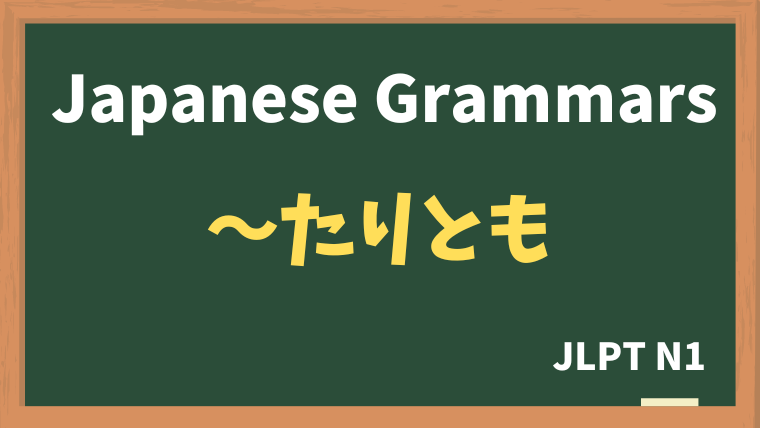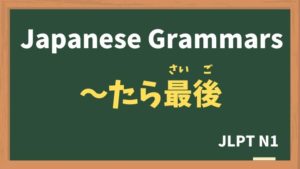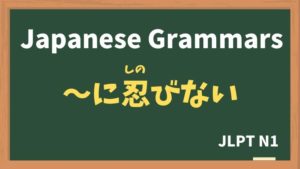
Explanation:〜たりとも〜ない
fa-check-circleMeaning
“〜であっても / 〜さえも”
Used to emphasize that not even the smallest amount or the least degree of something is allowed or happens. It expresses absolute denial or prohibition, often using numbers or units of something (like "1 yen," "a single person") to indicate that even the smallest possible unit is not allowed or does not occur. It can be translated as "not even" or "not a single" in English.
fa-check-circleForm
1 + counter + たりとも
fa-check-circlePoints
- Emphasizing Absoluteness: The phrase stresses that even the smallest amount or degree of something is completely prohibited or nonexistent.
- Focus on Small Units: It typically uses small units (like "1 yen," "1 second") to highlight that nothing at all is allowed or occurs.
- Strong Negative Expression: This is a strong negative form, often used in formal or serious contexts.
fa-check-circleJLPT Level
N1
Sample sentenes
試験まであと1週間。1日たりとも無駄にはできない。
There is one week left until the exam. I can't afford to waste even a single day.
明日は試験ですね。1分たりとも遅刻は許しませんから、早く学校に来るようにしてください。
The exam is tomorrow. I will not tolerate being late even by a single minute, so please come to school early.
お金は1円たりとも無駄にしてはなりません。
You must not waste even a single yen.
彼は1日たりとも、学校を休んだことがない。
He has never missed even a single day of school.
あの日の出来事は1日たりとも、忘れたことがありません。
I haven't forgotten that event even for a single day.
Vocabulary
| Japanese |
English | |
| 無駄にする | むだにする | to waste |
| 許す | ゆるす | to forgive |






